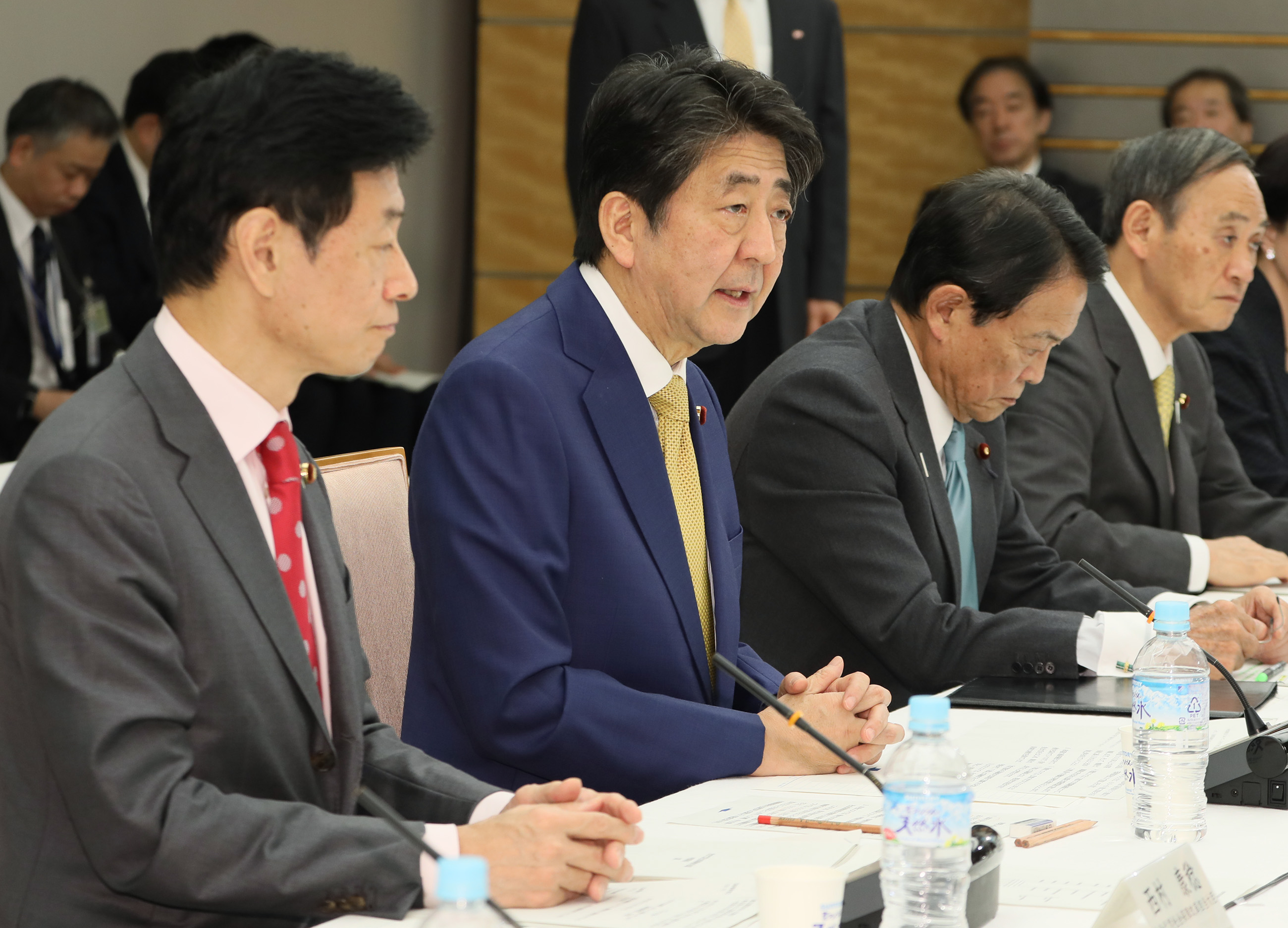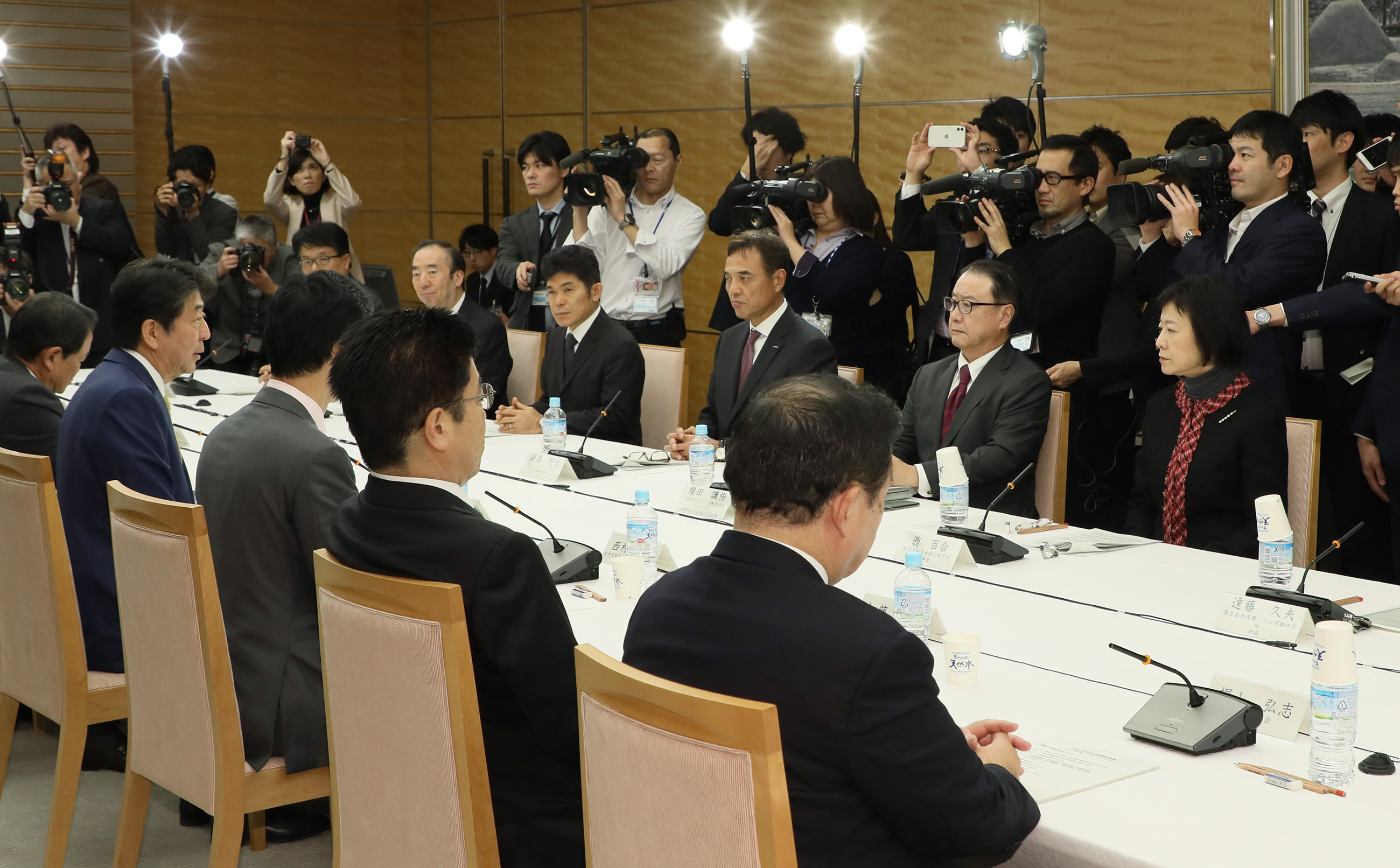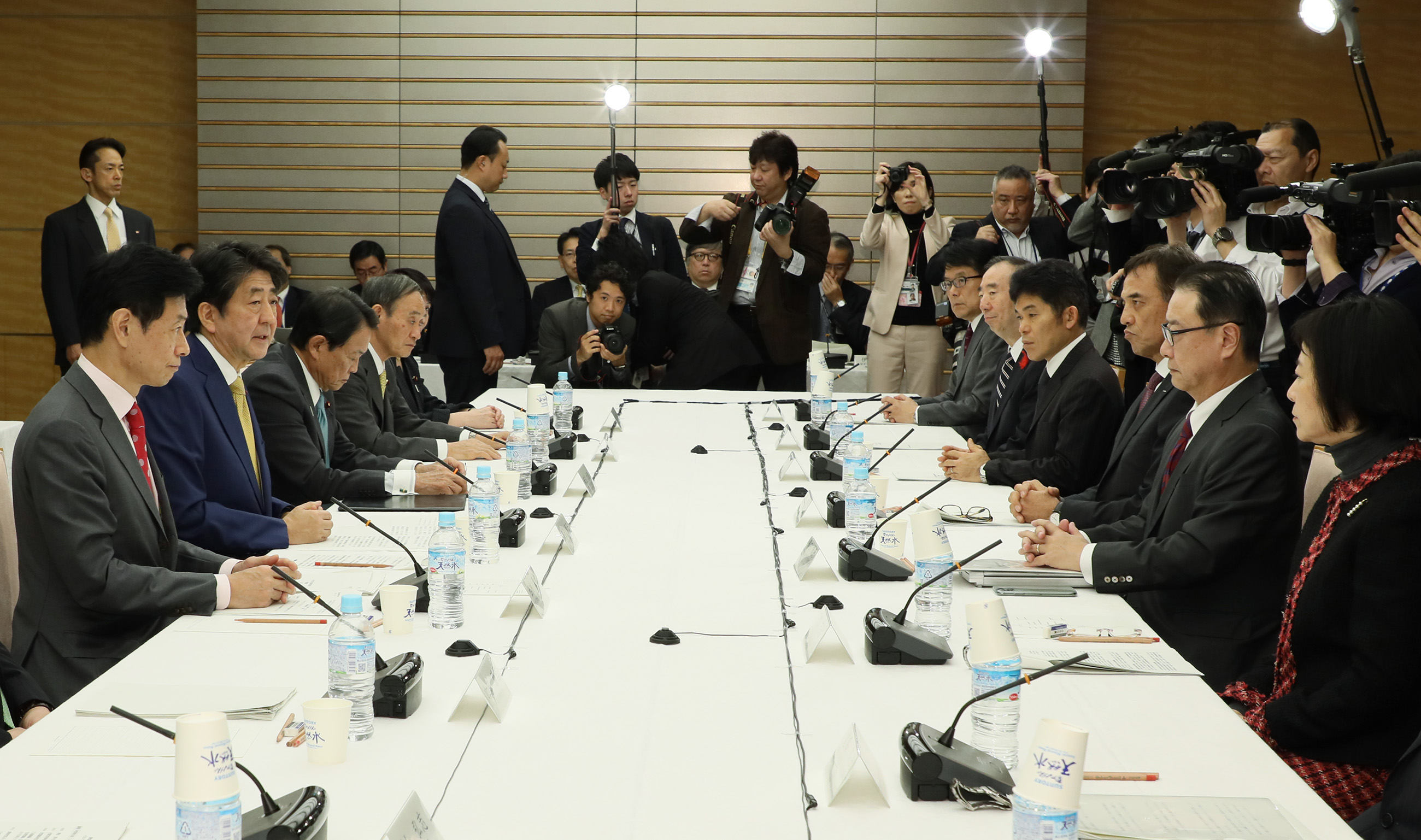Home > News > The Prime Minister in Action > December 2019 > Planning Meeting on a Social Security System Oriented to All Generations
The Prime Minister in Action
Planning Meeting on a Social Security System Oriented to All Generations
December 19, 2019
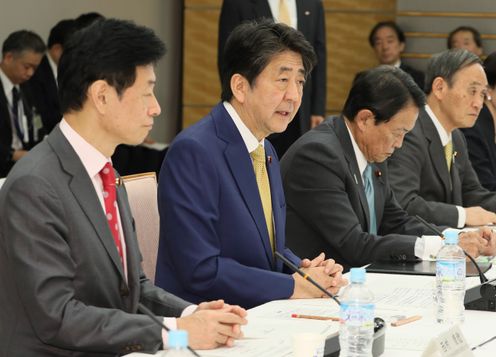
Photograph of the Prime Minister making a statement (1)
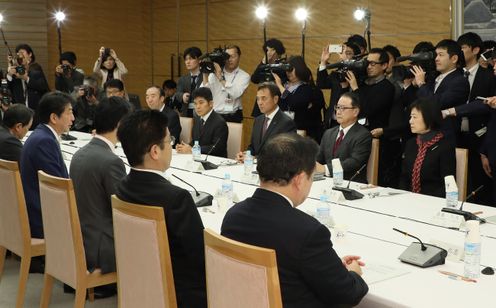
Photograph of the Prime Minister making a statement (2)
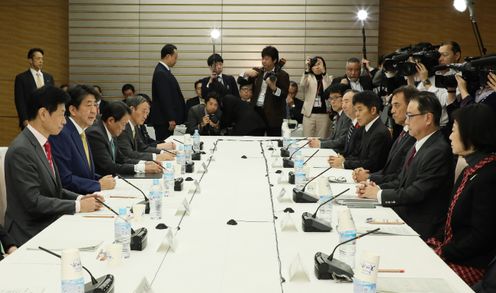
Photograph of the Prime Minister making a statement (3)
[Provisional Translation]
On December 19, 2019 Prime Minister Abe held the fifth planning meeting on a social security system oriented to all generations at the Prime Minister’s Office.
At the meeting, a discussion was held on the draft interim report of the planning meeting on a social security system oriented to all generations.
Based on the discussion, the Prime Minister said,
“Since the launch of this planning meeting in September, we have proceeded with reviews towards a social security system oriented to all generations.
Amidst the diversification of lifestyles, we have reviewed a series of reforms covering the entire spectrum of social security, including work style, so as to sustain the peace of mind not only of the elderly but also children, the childrearing generation and the current working generation, changing the stereotypical view taken of the elderly.
Today’s interim report summarizes the outcomes of these reviews at the planning meetings so far.
Regarding pensions, it is necessary to develop a social security system that is satisfying regardless of work style.
To this end, we intend to expand the scope of the enrollment in the welfare pension to include companies whose number of employees exceeds 50. With respect to the timeframe, we will expand the scope of the enrollment to companies whose number of employees exceeds 100 in October 2022, and then to those exceeding 50 in October 2024. When we implement those measures, we also intend to consider supporting the efforts of micro, small and medium size enterprises to improve their respective productivity and other measures.
In addition, we will increase the options on the period of when to start receiving pensions to include those from the age 70 and review the old-age pension for active employees, which is paid to those aged 60 to 64.
Regarding labor, we will present a bill to the next ordinary session of the Diet requesting businesses to make efforts to secure employment opportunities up till the age of 70. When doing so, we will take into account the diversity of individual workers.
Regarding healthcare, the baby boomer generation will reach the age of over 75 in 2022. We expect the burden on the current working generation will rise greatly.
While creating a society in which healthy and motivated senior citizens play active roles throughout their lives, we intend to increase the upfront payment of medical expenses to 20% for those who have income exceeding a certain amount, even among those who are aged 75 or over. By doing so, we intend to create a system in which all generations can enjoy peace of mind, by minimizing the increase of burdens on the working generations.
In preparation of the final report, we will study options on the specific income criteria and the necessity of appropriate treatment, taking in-depth considerations of the impact on patients who need to receive medical consultations frequently over a long period, based on the situation facing the elderly.
Furthermore, regarding the fixed-sum payment for ambulatory medical consultations, from the perspective of streamlining outpatient functions and strengthening the role of family doctors, we will expand the scope of the system to request fixed-sum payments for visits to major hospitals without a referral letter issued by other medical institutions to include hospitals with 200 beds or more, and increase the amount of fixed-sum payment. By transferring the increased revenue to the public health insurance, we intend to minimize the rise of burdens on the working generations.
To prepare the final report in the summer of next year, we will further our reviews, listening to the views of the ruling parties. I ask the relevant ministers, including Minister in Charge of Social Security Reform Nishimura, to further advance detailed reviews.”

